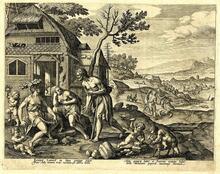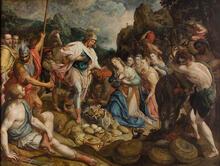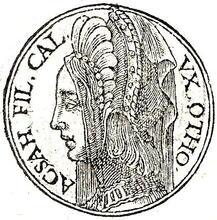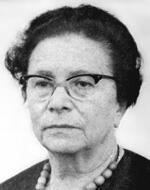Zillah: Bible
Zillah is named as one of the wives of Lamech, an ancestor of the Israelites. Zillah is significant because her children and those of her co-wife Adah are, according to the story of Genesis, in the seventh generation of naturally born human beings, representing the beginning of a “fully launched” human civilization. Her and her co-wife’s children are said to have created the civilized arts; Zillah thus constitutes an early link in the chain of musical Israelite women in the Bible.
Article
The genealogies in the early chapters of Genesis are critical in advancing the story of the world from the original population of two (Eve and Adam) to the full global population that becomes the backdrop for the story of the Israelite ancestors. All of these lists of begetters and those begotten (Gen 4:17–26; 5:1–32; 10:1–32) are comprised of male names with one exception, the family of Lamech, an ancestor appearing in the sixth generation after Cain. Lamech has two wives, and the names of both are given, the second being Zillah. In addition, the daughter of Zillah, Naamah, is named along with one of her sons and the two sons of the other wife Adah.
The unusual appearance of Zillah and two associated females in the male genealogies of Genesis 1–10 may be linked to the special role of the children of Zillah and of her co-wife. In the genealogical sequence, those children are the seventh generation of naturally born humans. In the biblical idiom in which seven represents totality, the seventh generation indicates the beginning of “fully launched” humanity. It is precisely at that point that the civilized arts are said to have begun, represented by the four children of Zillah and Adah: pastoralists (Jabal), instrumentalists (Jubal), metallurgists (Tubal-Cain), and vocalists (Naamah). Civilization is thus portrayed as the product of human creativity and not, as in most mythological beginnings stories, the gift of various gods to certain individuals. The mothers of the persons representing the beginning of civilized arts appear in the text, thus acknowledging that human creativity is inextricably linked to female parentage.
The names of Zillah, her co-wife, and her daughter are all interesting in relation to the Lamech story (Gen 4:19–26) as a foundational tale of the beginnings of civilization. If Zillah in fact does have a musical meaning (instead of, or in addition to, its possible meaning of “protector”), it combines with the meaning of Adah (something to do with adornment or decoration) and Naamah (“lovely one” or perhaps “singer”) to link the female with aspects of aesthetic expression.
Zillah and her co-wife are addressed in Gen 4:23 in their husband’s brief war taunt. This appeal to women in an archaic poem concerning military exploits is probably related to the fact that, in Israelite tradition, the prominent role of women as musicians includes the custom of women composing and performing victory psalms or songs (as by Miriam and Deborah) following an outstanding military victory. The names of the wives and daughter of Lamech, as well as their implied relation to his enigmatic slaying of an enemy, reflect the inherent connection of music and women in this biblical conception of humanity.
Cassuto, Umberto. A Commentary on the Book of Genesis. Part 1, trans. Israel Abrahams. Jerusalem: 1961.
Meyers, Carol. “Mother to Muse: An Archaeomusicological Study of Women’s Performance in Ancient Israel.” In Recycling Biblical Figures: NOSTER Conference 1997, edited by Athalya Brenner and Jan Willem van Henten. Leiden, Netherlands: 1998.
Meyers, Carol, General Editor. Women in Scripture. New York: 2000.
Niditch, Susan. “Genesis.” Women’s Bible Commentary, edited by Carol A. Newsom and Sharon H. Ringe, 10–25. Kentucky: 1992.










